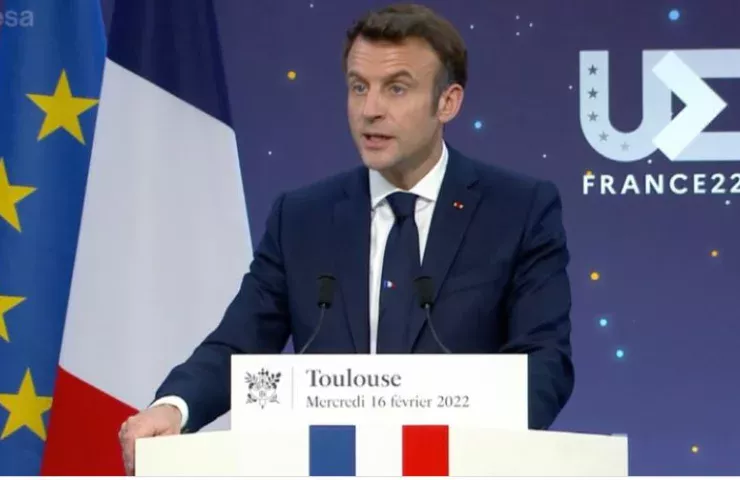The European Space Agency will set up a committee, including representatives from both inside and outside the space industry, to develop options for a European human space exploration programme.
The establishment of what ESA has called a "High Level Advisory Group" was one of the main outcomes of a one-day "Space Summit" held in Toulouse, France on 16 February, which was attended by representatives of Member States from both ESA and the European The Union will discuss future European space initiatives.
Josef Aschbacher, Director General of ESA, said the proposal to set up an advisory group came from French President Emmanuel Macron. “We have received a very clear message from President Macron that such a group is needed. He asked ESA to assemble a group,” he said at a press conference after the summit.
In a speech earlier in the day, Macron mentioned his desire to explore options for a European human spaceflight program. “Before the summer, we want to work out more specific European goals and ambitions for human spaceflight,” he said through an interpreter. "We need to know what our priorities are, have the data to back that up, and prepare the options we're going to take for the November ministerial."
These options, he says, include a European mission to Mars by the end of the next decade, or an "ISS-style" project. “It's a bold ambition,” he said. “These are fundamental human problems that we will be working on for the next decades.”
Aschbacher said the draft mandate for the new advisory group would be presented to ESA members at the ESA Council's March meeting, which aims to get the group started immediately. The committee will prepare an interim report for the ministerial meeting in November, with a final report due next spring.
“It is clear that this group should be independent and consist mainly of non-space specialists,” he said, “because we really would like to look at various aspects of society from an economic point of view, from a historical point of view, from a geopolitical point of view ". This means including people like artists and philosophers in the group to explore different aspects of research that goes beyond science and technology.
French Economy Minister Bruno Le Maire, who chaired the summit, said the group would help Europe develop strategies for space exploration. “The Chinese have defined an intelligence strategy. Americans too,” he said through an interpreter at a press conference. "We haven't done it yet, and we need the right method."
According to him, the group will consider issues including what level of cooperation Europe will seek with other countries, as well as the role of humans versus robots. "What's the schedule? What are the funding mechanisms? These are all important questions, and we have tasked this panel of experts with finding answers so that we can then make recommendations.”
In the weeks and months leading up to the summit, ESA worked hard to secure support for a manned space exploration program. This included the release of the "European Astronaut Manifesto" by the European chapter of the Association of Space Explorers, the professional body for astronauts.
“Europe, which positions itself as a leading society, should be able to set its own goals and decide for itself how far it wants to go in space exploration, united by our European values,” the document says. “Now we have a unique opportunity to accelerate and become a fully recognized partner in the global space effort.”
“While Europe continues to be at the forefront of many space endeavors such as Earth observation, navigation and space science, it is lagging behind in the increasingly strategic areas of space travel and exploration,” said Luca Parmitano, ESA astronaut, during lunch . at the summit, reading the manifesto. “European leaders must urgently decide whether Europe should intensify its efforts to remain at the forefront of space powers shaping the future of this planet, or fall behind and become a junior partner for decades to come.”
At the summit, other European space initiatives were approved with minor changes. This includes a set of "accelerators" and "masterminds" previously supported by ESA members, one of which is human space exploration, as well as the European Union's initiatives to create a secure connection constellation and manage space traffic. The participants also agreed to hold a second summit in 2023.




